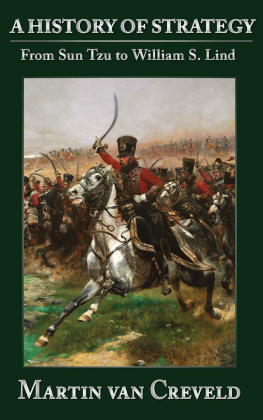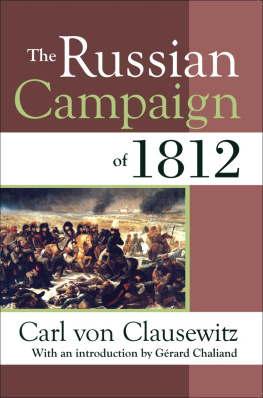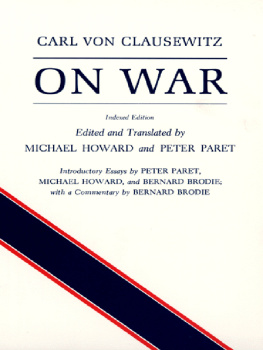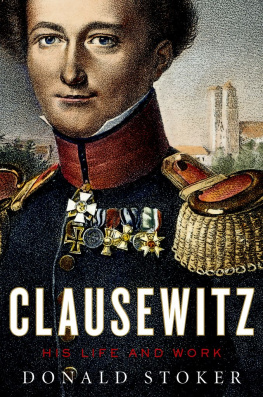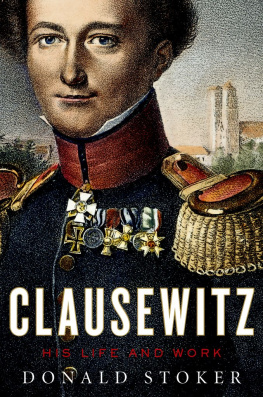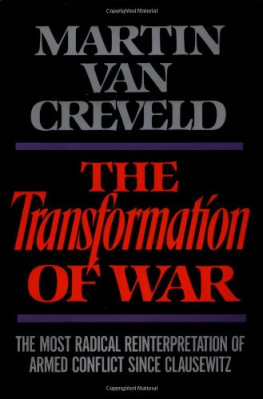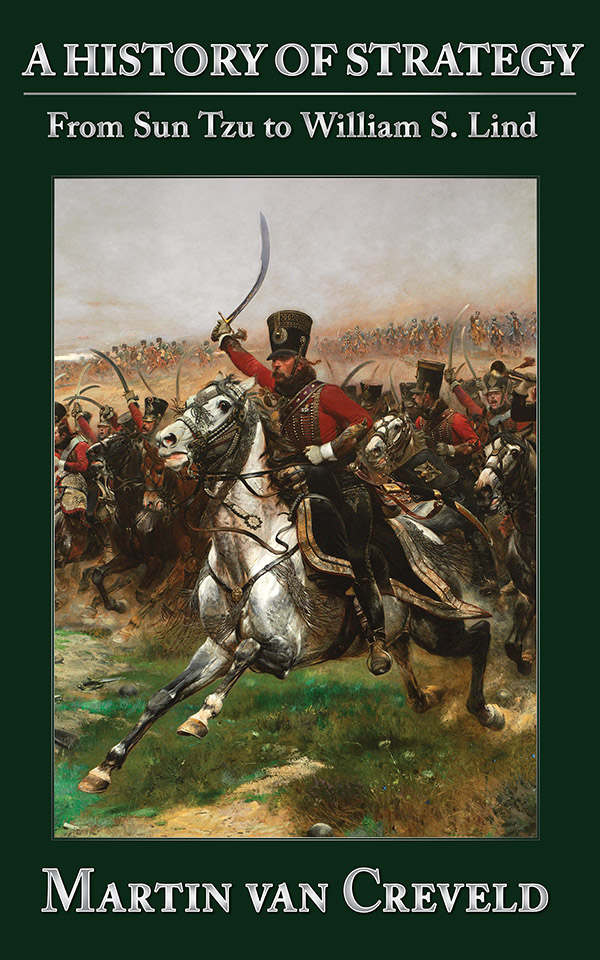Martin van Creveld. - A History of Strategy: From Sun Tzu to William S. Lind
Here you can read online Martin van Creveld. - A History of Strategy: From Sun Tzu to William S. Lind full text of the book (entire story) in english for free. Download pdf and epub, get meaning, cover and reviews about this ebook. genre: History. Description of the work, (preface) as well as reviews are available. Best literature library LitArk.com created for fans of good reading and offers a wide selection of genres:
Romance novel
Science fiction
Adventure
Detective
Science
History
Home and family
Prose
Art
Politics
Computer
Non-fiction
Religion
Business
Children
Humor
Choose a favorite category and find really read worthwhile books. Enjoy immersion in the world of imagination, feel the emotions of the characters or learn something new for yourself, make an fascinating discovery.
- Book:A History of Strategy: From Sun Tzu to William S. Lind
- Author:
- Genre:
- Rating:4 / 5
- Favourites:Add to favourites
- Your mark:
A History of Strategy: From Sun Tzu to William S. Lind: summary, description and annotation
We offer to read an annotation, description, summary or preface (depends on what the author of the book "A History of Strategy: From Sun Tzu to William S. Lind" wrote himself). If you haven't found the necessary information about the book — write in the comments, we will try to find it.
Martin van Creveld ranks high among military historians, and given the changes in technology since Napoleonic Times, his work is a necessary supplement to Clausewitz. Jerry Pournelle.
The Art of War by Sun Tzu and On War by Carl von Clausewitz are known to everyone who studies war. But in the approximately 2,327 years that separated Mans two most famous works of military tactics and strategy, a considerable number of less well-known works were published. Some, such as those written by Vauban and Douhet, were focused on specific aspects of war, while others like Onasander and Jomini wrote works that were more general in nature. But all of them were written with the objective of permitting generals and other leaders of men to wage war more effectively. .
There are few better suited to write the history of strategy and military thought than Dr. Martin van Creveld, who has himself been a significant contributor to the literature of war. A Professor Emeritus at the Hebrew University, Jerusalem, Dr. van Creveld is one of the worlds leading writers on military history and strategy, with a special interest in the future of war. He is fluent in Hebrew, German, Dutch, and English, and has authored more than twenty books, including the influential Technology and War: 2000 BC to the Present (1988), The Transformation of War (1991), and The Culture of War (2010). He is known for his development of the concept of nontrinitarian warfare as well as contributing two books to the 4GW canon.
Featuring a foreword by Dr. Jerrry Pournelle, A History of Strategy: From Sun Tzu to William S. Lind begins with the Chinese military literature, then reviews the Greek, Roman and Byzantine works before proceeding to the Middle Ages. From Machiavelli and Montecuccoli to Guibert and Frederick the Great, van Creveld chronicles the gradual transition from medieval to Napoleonic warfare. Subsequent chapters delve into the literature of naval warfare, including Mahan and Corbett, then examine the works of the leading strategists of the early 20th century, including Moltke, Liddell Hart, and Ludendorff. The final chapter considers the modern strategists behind such concepts as Mutually Assured Destruction, terrorism, insurgency, and 4th Generation War.
This brief, but wide-ranging history is an effective education in military thought. It is an excellent introduction to the various strategic works for the neophyte, and an illuminating summary of them for armchair and professional experts alike. Van Creveld not only describes each thinker and his most important contributions, but explains how one conceptual.Table of Contents.
Chinese Military Thought.
From Antiquity to the Middle Ages.
1500 to 1763.
From Guibert to Clausewitz.
The Nineteenth Century.
War at Sea.
The Interwar Period.
1945 to the Present.
Martin van Creveld.: author's other books
Who wrote A History of Strategy: From Sun Tzu to William S. Lind? Find out the surname, the name of the author of the book and a list of all author's works by series.

